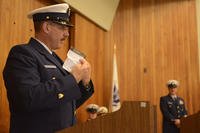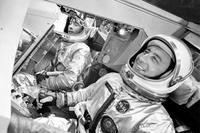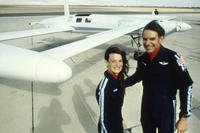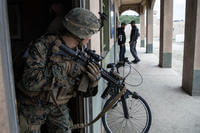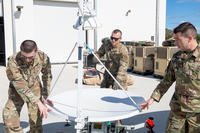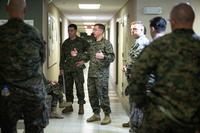The U.S. Air Force's top civilian said she's "certain" the service will certify Space Exploration Technologies Corp. to launch military satellites.
Air Force Secretary Deborah Lee James made the comments during a State of the Air Force briefing Thursday at the Pentagon.
"As far as I'm concerned, this is not a question of if they will be certified, it's a question of when," she said. "It's still some months away, but I'm certain that it will be there."
Air Force officials were "disappointed" they weren't able to qualify the start-up rocket-maker by the end of the year as planned, James said. Lt. Gen. Sam Greaves, commander of the Space and Missile Systems Center at Los Angeles Air Force Base, is leading the certification process, which was delayed by at least six months.
The company, known as SpaceX and headed by billionaire Elon Musk, met 80 percent of the criteria for certification; 20 percent remains to go, James said.
"This is real engineering work that needs to be demonstrated, this is not a paperwork shuffle," the secretary said. "I hope SpaceX knows we're operating in good faith."
SpaceX last year sued the Air Force to open more missions in the so-called Evolved Expendable Launch Vehicle, or EELV, program to competition. The acquisition effort, which uses medium- and heavy-lift rockets to launch military and spy satellites, is solely supplied by United Launch Alliance LLC, a joint venture of Lockheed Martin Corp. and Boeing Co.
The Air Force estimates it will spend a total of $70 billion on the program through 2030. SpaceX, which has dramatically lowered the cost of launch to between $60 million and $70 million per liftoff, wants a piece of the U.S. military market. It hopes to further reduce launch costs by developing reusable rockets.
For years, Musk has repeatedly criticized the Pentagon and ULA for relying on the Russian-made RD-180 as a first-stage engine on the Atlas booster. After Russia's invasion and annexation of the Ukraine's Crimea region last year, both the Air Force and the joint venture pledged to develop an alternative propulsion system.
"We will get there," James said, referring to SpaceX certification. "It's in our national security interest to get there."
More recently, in an article in Bloomberg Businessweek, Musk questioned the integrity of the Air Force acquisition workforce, some of whose members he said go on to seek jobs at Lockheed and Boeing.
"I don't know who he's referring to," James said, when asked to response to his comments. "The people that I know are working very, very hard on this certification process. I think those are unfortunate remarks and I don't agree with them."
The secretary also said Larry Welch, a retired four-star general and former chief of staff who recently investigated failures of the service's nuclear workforce, would review the certification process to see "if there are ways that we can streamline, speed it up, do things a little bit differently, but still of course, protect what we call mission assurance."
She added, "We want these satellites to be launched without failures, without crashes and burns, which by the way we had some spectacular failures in the late 90s ... We don't want to sacrifice that [mission assurance], but there could be lessons learned."

